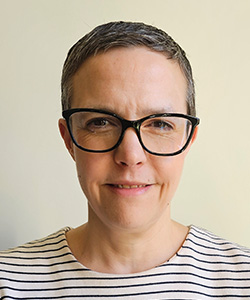
Enhancing Student Engagement and Diverse Voices
How a Professor Found Ways to Better Engage Students in the Study of Hispanic Literature
Meghan McInnis-Domínguez, associate professor of Spanish in the Department of Languages, Literatures and Cultures, was intent on finding ways to better engage her students in the study of Hispanic literature.
With an Open and Affordable Materials grant, McInnis-Domínguez moved beyond the traditionally canonical readings and incorporated readings from more indigenous, female, African and LGBTQIA+ authors into the course to ensure authors with whom the students identified were represented. She also leveraged digital platforms, such as Canvas and Perusall, to make assignments and learning more interactive.
To achieve this, McInnis-Domínguez worked closely with librarian Megan Gaffney to replace the previously used textbook with a foundational text available to students at no cost to them through the Library, Museums and Press, and to integrate affordable and accessible resources, including books and websites, into the course. McInnis-Domínguez also built assignments around present-day articles from Hispanic news sources that relate to class topics – and are available at no cost to students through the Library’s databases – to bring historical context to contemporary issues.
As part of the grant, McInnis-Domínguez also collaborated with Amy Ritter from the Center for the Teaching and Assessment of Learning to ensure the licensed Library resources were seamlessly integrated into the course’s Canvas site. In this structured learning environment, the students can annotate the texts, add comments, and add vocabulary terms and links to readings for greater engagement.
In transforming her course to include voices and topics that are more relevant to students and enhanced methods for students to engage with the material, McInnis-Domínguez also brought the cost of course materials for students down to $0, fostering a learning environment where cost is not a barrier. Following that success, McInnis-Domínguez plans to transition all of the teaching materials she uses in her 300-level literature courses to open educational resources.
“Feedback from students on the use of open educational resources has been overwhelmingly positive,” said McInnis-Domínguez. “They appreciated the cost savings and found the readings more enjoyable and easier to relate to compared to previous literature courses … Overall, the introduction of open educational resources markedly improved course accessibility, student satisfaction and engagement with Latin American literature in SPAN 303.”
For more information on sourcing and using Open Source materials, please contact the library!
